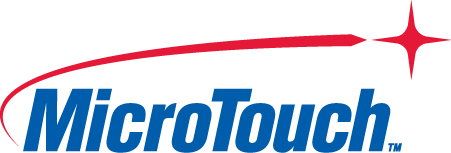What Is an All-in-One POS System?
An All-in-One Point of Sale (POS) System is a complete, integrated solution that combines time clock, payroll, and inventory control with Point of Sale. The term “All-in-One” derives from the idea that all of these functions are managed by a single piece of software. Retail businesses in need of an affordable way to manage time and attendance, payroll, and inventory can significantly benefit from an All-in-One System.
What Is a Point of Sale (POS) System?
Point of Sale systems or software typically consist of three applications: the POS system itself, a customer relationship management (CRM) application to keep track of salespeople and customers, and a reporting application for analyzing sales data. POS systems emerged in the late ’80s to simplify the process of tracking inventory, purchasing stock, and recording customer transactions.
The first All-in-One solutions were single PCs that supported multiple peripherals such as printers, scanners, barcode readers, scales, and signature capture devices. As technology improved, companies began to replace their single PC models with All-in-One systems that included hardware explicitly designed for the POS system.
Today’s leading All-in-One POS systems are purpose-built computers with Intel processors, fast Wi-Fi/Ethernet networking capabilities, touch screens, and preloaded software packages that allow users to simply turn on the device and begin accepting payments.
In addition to processing sales transactions, many All-in-One systems also support CRM applications that help salespeople manage their contacts and appointments with customers. Some POS solutions offer a customer management system in addition to a Point of Sale solution. When purchased together, CRM and POS comprise a complete POS system.
What Does an All-in-One POS System Include?
All-in-One POS systems are built upon a software platform. There are two types of All-in-One solutions: those that run on dedicated hardware and those that run on virtual machines (VMs).
Virtualized All-in-One Systems
VM All-in-Ones consist of one or more VMs running on a host server with hypervisor software managing resources and executing access controls. A VM is an emulation of dedicated hardware that shares physical resources with other VMs in the system.
Virtualizing POS systems enables businesses to purchase just one server to support multiple POS systems, saving them money on installation fees for each additional POS terminal. Virtualized POS often uses a client/server model where all terminals communicate with the host server to share resources, including access to a database for transaction reporting.
Virtualized POS systems can be set up and running in as little as an hour, making them suitable for businesses that need to add more terminals quickly. Virtualized POS systems allow companies to add or remove terminals in just a few clicks.
Dedicated All-in-One Systems
A dedicated All-in-One system consists of one or more terminals sharing hardware, generally using computer networking protocols like TCP/IP to communicate with the server. A dedicated POS is usually set up as a peer-to-peer network where each terminal has its processing power.
Dedicated POS systems can offer faster response times, more storage space for data, and higher-end hardware since the system only has to support one terminal. Dedicated POS systems are generally less costly than virtualized solutions because businesses purchase all their hardware upfront instead of sharing it with multiple VMs.
What Does an All-in-One POS System Offer?
All-in-One POS systems usually include a back-office software suite that consists of a reporting feature to help track performance and manage costs. A dedicated POS system provides all the hardware necessary for managing Point of Sale transactions, including barcode scanners, card readers, cash drawers, receipt printers, scales, and more.
What Are All-in-One POS Systems Used For?
All-in-One POS systems are designed for managing products, inventory management, and tracking business performance. They can track what types of goods are selling the most, which locations have the highest sales volume, and how many items are in stock.
Advantages of All-in-One POS System
- Saves time and money on equipment and service calls
- Offers multi-functionality in one integrated package, including inventory management, customer relationship management, payroll, Point of Sale transactions tracking, and more
- Many systems offer wireless capabilities to allow business owners to move around their business while staying connected
- Allows business owners to quickly and easily add or remove terminals as their business grows
- Provides data security by encrypting all transactions and reports
A POS system can be considered an open-source platform, but the sources are not available to users or developers outside of the company providing POS software. The proprietary nature of POS allows for more secure consumer data protection. It protects business owners from legal liabilities involved with holding consumer credit card information on file required for certain types of transactions. There are many benefits associated with POS software, including high performance, multi-functionality, ease of use, and security. However, it is essential to understand what POS software can do to decide whether or not to implement a system at your business.
All-in-One POS systems have many functions that can help you run your business efficiently. They provide you with all your business needs, including inventory, payroll, reporting, and many more functions for your business. All-in-One POS systems are a perfect solution for restaurants, retail shops, or any food shop where things are sold at great speed, and accuracy is always required.
For the most advanced All-in-One POS Systems on the market, give the experts at MicroTouch a call today at 616-786-5325. We have offices all around the world ready to assist.
